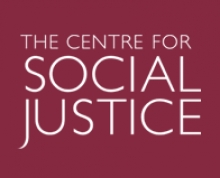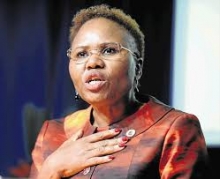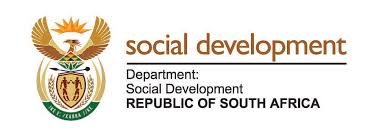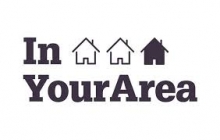Work TV
Watch our TV Channel dedicated to the ‘World of Work’. Explore our video library for informative videos featuring career opportunities at leading companies, franchising opportunities, further education and recruitment professions and their services.
Simon Collyer
Global Bank Fines a Simply Eye Watering Figure
BANK FINES - New research released today by Finbold reveals which banks globally faced the biggest fines imposed by the regulators on a Year-to-Date (YTD) basis, as well as the total combined bank fines by countries.
You can view the research in full here:
https://finbold.com/bank-fines-2020/
Fines were imposed by regulators for breaches of different protocols like Anti-Money Laundering (AML), violation of Know Your Customer (KYC) and operating guidelines, personal data leaks, among others. The data was sourced from various publicly available sources.
The top ten banks with the biggest fines imposed by the regulators:
|
Rank |
Bank |
Country |
Total Fine in Billion $USD |
|
1 |
Goldman Sachs |
US |
$3.97 |
|
2 |
Wells Fargo |
US |
$2.96 |
|
3 |
Westpac |
Australia |
$0.9 |
|
4 |
Bank Hapoalim |
Israel |
$0.89 |
|
5 |
Swedbank |
Sweden |
$0.42 |
|
6 |
Citigroup |
US |
$0.39 |
|
7 |
Deutsche Bank |
Germany |
$0.14 |
|
8 |
Scotiabank |
Canada |
$0.12 |
|
9 |
TD Bank |
US |
$0.12 |
|
10 |
SEB bank |
Sweden |
$0.11 |
Other key findings from this report include:
- Global banks fined $10.54 billion in 2020 YTD
- The US banks racked up $7.61 billion in fines in 2020, 72.2% of $10.54 billion of all banking fines globally
- In the US, seven separate banks were fined
- The most common violation is Anti-money laundering breaches
- In total, over 30 banks globally were fined with a bigger than 500k EUR fine in 2020 YTD.
Trick or A Tasty Treat? Foodhub Is Offering A Scarily Good Deal This Halloween
NOSHTASTIC - Foodhub is offering 20%* off this Halloween, so people can enjoy a spook-tacular snack!
Halloween night is usually spent out and about trick-or-treating or at a fancy dress party with your friends and family. However, the 31st this year, may be slightly different.
Spend the evening dressing up in your favourite, creepy costumes and indulge in a frighteningly good feast with Foodhub.
Families can choose from a range of local takeaway/restaurant suppliers, so if you’re craving Chinese, Indian, Fish ‘n’ Chips or have a sweet tooth – Foodhub is the perfect recipe.
A discount of 20% will be provided to all new customers first order on Foodhub, simply input the code SPOOKY2020 at checkout and enjoy a terrifyingly tasty treat at your feet!
*offer valid NOW until the 23:59 on Sunday 1st November
Terms & Conditions
- · £5 maximum redemption value
- · One use per customer
- · New customers only
- · Full terms - foodhub.co.uk
ABC Comment, have your say below:

ABC Comment, Following COVID-19 The Great Reset is Coming
PERSONAL VIEWPOINT - I woke up at two in the morning and wrote a letter to a newspaper. I have been baffled by what is happening at the moment. Locally the COVID numbers are small and as we know lots of people have no ill effects. Shutting down the economy to such an extent has been a controversial decision.
Is more going on than controlling COVID-19?
The American War of Independence came about because all money is borrowed into existence and the settlers in America did not want to borrow their money from the Bank of England and pay interest and be debt slaves to the English. President Lincoln was shot because he was proposing a currency called the ‘Greenback’ which was outside the banking system. The Federal Reserve in America is a private company. A central bank was proposed and set up in 1913 by the banks. The role of a central bank is to stabilise the currency.
Late in the Second World War, the Germans tried to drive a wedge through the advancing Allies called the Battle of the Bulge. Montgomery was wounded in the First World War and was careful with the lives of his men The yanks top brass were gung ho and they were getting annoyed with his leadership and the slow progress after D Day. The Germans drove their tanks through the Ardennes Forest and were stopped at the Battle of the Bulge. They committed the Malmedy massacre as they could not stop and round up prisoners. The captured general that ordered that action was executed by firing squad a few days later. What went wrong was that the gas-guzzling Tiger Tanks at the head of the columns down these narrow roads ran out of fuel and when the weather cleared the columns of military vehicles were decimated by US Mustang planes.
So even before the end of WW2, the US realized the strategic importance of oil as of course Hitler had been trying to get to the Caucuses to secure his supplies. Stalingrad could cut his lines of supply and thus the defeat at Stalingrad turned the tide of the war.
After WW2 the US was victorious and at Bretton Woods, the Americans secured an agreement that all the world international trade for commodities would be denominated in dollars. Later the American got the Saudis on board. Saudi Arabia had been conquered by force and the US agreed to guarantee the nation's security in exchange for oil. They Americans promised to make the Saudis rich….. Much of the UK's oil came from Iran. Churchill had overseen with great foresight the advantages of oil over coal that needed coaling stations all over the world.
In return, the Americas financed the re-building of Europe and Japan called the Marshall Plan in Europe from the profits they made from the war.
The Petro-dollar system works like this. Countries like Japan (later China) that sold cheap electronics to the US market roughly 2/3 of the global market in total for consumer goods get paid in dollars. If they repatriate this money to Japan or China they have to sell dollars and buy Yen or Yuan. This bids up the price of their native currency but depreciates the dollar. That would slow exports. So international companies and governments started holding dollar deposits in US banks and using these savings to buy oil and raw materials. This created a huge demand for dollars. So the Americans could expand the numbers of dollars available without it causing too much inflation. Because all the worlds currencies are pegged to the dollar - what happens to the dollar affects everyone.
Goods and Services Sold = Currency.
The latter can be electronic digits, not just paper money of course. This also created the Eurodollar currency market were dollars were traded in FX marketing in Europe held in the City and places like Frankfurt without being repatriated.
In the 1970s there was high inflation. Young people wages had gone up four times in the ‘swinging sixties’ in the UK, but inflation took off in the ’70s and unions became very powerful bidding up wages. In the UK the miners were the aristocrats of the workers. If other unions forced up their member's wages the miners needed their wages increased.
In the ’80s monetarism came in and Lady Thatcher’s goal was to break the power of the unions and restore the value of money by stopping inflation with policies that led to severe austerity.
In the 60’s President, Nixon wanted to fight the Vietnam War and stop communism. The domino theory was that if one country fell so would others. In Angola, there was a proxy war and Cuban mercenaries became involved. After WW2 many counties saw the opportunity to break away from their colonial masters. To get the help they turned to the Soviet Union. Nixon took the currency off the Gold Standard around 1971. This caused food price inflation and the Head of the Department of Agriculture suggested replacing sugar with corn syrup. If sugar has a sweetness of 100 corn-syrup under it various brand names have more the sweetness of 130 on the sweetness index. People, as a result, became fatter.
The Soviet Union could not keep the pace of American military spending and eventually collapsed.
In the ’90s and noughties, America and her Allies were drawn into wars in Iraq, Afghanistan and Libya. To check the ambitions of Russia and secure pipeline routes from terrorists as some planned outcomes.
Saddam Hussain following US sanctions planned to snub the former allies that brought him to power and planned to sell oil in Euros. In Libya, Colonel Gaddafi held two conferences about creating a pan-African currency backed by Gold. Both initiatives could have weakened the dollar.
The Arab Spring was a populist revolt that spread from Tunisia into Egypt. It was driven by high graduate unemployment. There was no Rothchild controlled central bank in Syria. The overthrow of the government was not as easy as people had expected and the power vacuum in Iraq after the Americans won that led to the growth of ISIS and international terrorism.
Wars are expensive and the banking market that had lobbied for deregulation brought about the collapse of the banking sector in 2008 via reckless lending in the housing market. All the banks are connected via a ring main (in essence) and nightly they settle accounts with each other, however very little of this money is cash, gold or silver it is mainly digits on a computer screen. So the government had to print money and pump masses of liquidity into the system to give the banks the confidence to trade with each other.
When banks want people to borrow money they lower the time cost of money (interest) but when there is so little demand and so much money available because of quantitative easing this creates near-zero interest. Indeed, the EU experimented with below-zero interest rates where the customer pays the bank to hold their money.
Large companies have borrowed money to do large share buy-backs. Reducing the number of shares in circulation drives up the value of the remaining shares. It rewards executives with share options and those who sell their shares but it leaves companies exposed to huge debts, which are manageable with low-interest rates. However, if all this printing of money waters down the value of money then interest rates need to go up to encourage investors to hold a currency declining in real value.
When you borrow money from a bank you get a letter to take to the teller who creates an account. Customers deposits do not fall, the bank has not lent its money however they must keep around 9% as their reserves, so thus, as this money is spent with a trader he banks it and the bank must hold 9% as reserves. This can happen around nine times. This is called the Fractional Reserve System. 95% of all credit is created by banks. Credit = Money. The problem is that banks like to lend an umbrella when it is sunny - they don’t like to lend when it is raining. So this exacerbates instability in the economy. People borrow money, work and buy assets, but every so often the financial system crashes the economy and thus the rich buy-up assets for a few cents on the dollar.
Since 2008 the world economy has spluttered along. If it costs the cost of a barrel of oil (only as an example) to produce a barrel of oil you can see the issues. As we go into a future where finite resources are being used up, the cost of producing those resources increases. As costs go up, demand falls and more people become out of work.
Since the 70’s the value of money has been falling. Once a mans wages could provide for a family. Now both partners are working and they need second jobs. Around the world is high unemployment. One in six people in America is on food stamps. If the world seems prosperous cheap goods produced by globalization have created a feeling we are moving forward, but in developed countries, high unemployment is the norm.
So what is happening now?
We were on the brink of a major economic collapse then along comes COVID-19. Was it deliberately caused or a function of the Chinese who during the Chairman Mao’s great famine were encouraged to eat anything going? Or, is it a result of us encroaching on the habitats of animals and birds that have illnesses that can cross over into the human population?
We have seen the rise of Bitcoin. The advantages of electronic currency are that the amount of currency circulating is fixed. Fiat currency like the pound or the dollar can be added to...devaluing their value over time. 650 of the worlds paper currencies all failed eventually.
High unemployment globally is a growing problem and it is a factor in social unrest in America and of the rise of extreme Islam.
Far bigger than the threat of COVID-19 is the environmental threat. This has to be tackled or we will all perish it is argued. Just like the Wild West with its range of wars over water society could plunge into chaos.
Governments are becoming increasingly authoritarian and the populations polarized.
In January 2021 the World Economic Forum meets in Davos. I think they plan to completely reset the world economy.
We will see the rise of more authoritarian forms of government and unlike the theory of free markets with market forces set the agenda, we will see the rise of socialism. I can see a global currency coming in the form of electronic currency and that we are going into a much more controlling form of government.
We may even see population control brought in as it had been in China with the one baby policy. Environmentalism will be top of the agenda.
The world is not going to go back to the way that things were before. The response to COVID-19 is getting the citizens used to a government that is far more controlling of the population. The public is potentially being conditioned using the COVID-19 crisis.
ABC Note: We shall see, but here at the ABC get ready we say for the BIG RESET in 2021 as the whole global economy changes.
ABC Comment, have your say below:

Christmas Benefit Payments When Will You Get Paid?
CHRISTMAS BENEFIT PAYMENTS - The DWP have said: "If a payment date is on a bank holiday or weekend, customers will be paid on the last working day before the bank holiday or weekend."
This year, things are different in that Monday December 28 is a bank holiday in lieu of Boxing Day, which will fall on a Saturday and therefore not count as a public holiday.
Due date: December 24, 2020 - Payment date December 24
Due date: December 25, 2020 - Payment date December 24
Due date: December 26, 2020 - Payment date December 24
Due date: December 27, 2020 - Payment date December 24
Due date: December 28, 2020 - Payment date December 24
Due date: December 29, 2020 - Payment date December 29
Due date: December 30, 2020 - Payment date December 30
Due date: December 31, 2020 - Payment date December 30
Due date: January 1, 2021 - Payment date December 31
Call the helpline straight away if your payment does not arrive on time.
The Universal Credit helpline number is 0800 328 5644. Lines open Monday to Friday, 8am to 6pm. All calls are free. The line is closed on bank holidays.
ABC Comment, have your say below:

Iain Duncan Smith Founded Centre for Social Justice Think Tank Produces Report Unfinished Business: Next Steps for Welfare Reform In post-Covid Britain
NEW REPORT - Iain Duncan Smith founded Centre For Social Justice has come up with a new report.
Today the Centre for Social Justice Think Tank has published a major new report called ‘Unfinished Business’ which outlines plans for a universal support system to sit alongside Universal Credit payments. Universal Credit is not the end of the welfare reform story. The next task that faces the Department for Work and Pensions say the think tank must be how to support people back in to work and not forget those furthest from the jobs market. Director of Policy, Edward Davies explains how this would work below.
The Centre for Social Justice have submitted these plans to the Chancellor and they say they will be pushing for significant new investment in helping overcome the barriers facing many Universal Credit claimants as they look for sustained employment in the coming months and years.
You can download the report below:
ABC Comment, have your say below:

Please download: Unfinished Business: Next steps for welfare reform in post-Covid Britain

South Africa Active Ageing Week from 25 to 31 October 2020
SOUTH AFRICA - Active Aging Week highlights the capabilities of older persons as fully participating members of society and encourages them to participate in simple exercises.
This rise in life expectancy in South Africa say the government has also seen older persons making up a larger proportion of the population than before.
This improvement puts South Africa on track to achieve the goal of the National Development Plan, which is to increase life expectancy to 70 by 2030.
According to the 2020 Mid-year population estimates report from Stats SA, life expectancy in the country has been on the increase since 2007
Life expectancy at birth for 2020 is estimated at 62,5 years for males and 68,5 years for females.
The report is in line with the 2018 World Health Organisation, which also showed a rise in life expectancy.
Government calls on all South Africans to prevent the spread of non-communicable and chronic lifestyle diseases such as hypertension, diabetes, and heart disease.
The majority of non-communicable diseases are caused by poor life-style choices, including poor diet and a lack of physical activity.
South African can reduce the risk of lifestyle diseases through improved nutrition and improved physical activity.
The social benefits of physical activity include long-term health benefits, stronger and more secure communities, closer family units and better social cohesion.
The Government has commend sports and recreation clubs that actively encourage the elderly to take up a healthy lifestyle and call upon others to do so.

Image: Active Aging.
ABC Comment, have your say below;

South Africa Social Development Department Will Extend ‘Temporary Social Grants’ Until December
SOUTH AFRICA - According to the South African Minister Lindiwe Zulu has officially signed off on legislation that allows two major social grants – the temporary disability grant and temporary care dependency grants – a payment extension. Here is who qualifies for the incentive:
SASSA (South Africa Social Development Department) will reassess some decisions, taking into consideration the reasons provided in applications for reassessment.
Going forward, temporary disability grants that lapsed in July, or were due to lapse between August – October 2020, have been extended until 31 December this year.
Care dependency grants that were extended to October – or were due to lapse between November – December 2020 – have been extended until 31 December this year.
ABC Note: Lindiwe Daphney Zulu (born 21 April 1958) is South Africa's Minister of Social Development. She was the special advisor to the President on International Relations. She previously served as the head of communication for the PAN African women's organisation in Angola in 1988.
ABC Comment, have your say below:

Night Shelters to Be Phased Out In Scotland
HOMELESSNESS - Scottish governments renewed commitment to ending homelessness.
Night shelters will be replaced with rapid rehousing welcome centres for people who would otherwise be sleeping rough this winter, in updated plans for tackling homelessness.
The centres will provide emergency accommodation for people who have no other options, encouraging them to move on to other services. People using the centres will be offered targeted support, including for wellbeing, health and social care issues, legal rights, employment and welfare.
Announced today in an updated action plan for tackling homelessness, the centres are part of plans to phase out night shelters entirely by expanding rapid rehousing approaches such as Housing First that provide settled accommodation as quickly as possible.
The Ending Homelessness Together updated plan also contains actions that will:
- minimise the risk of evictions
- strengthen protections for people experiencing domestic abuse
- give people with lived experience of homelessness or rough sleeping a greater say in the development of policy
- explore alternative routes to reducing migrant homelessness.
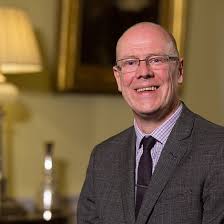
Image: Housing Minister Kevin Stewart.
Housing Minister Kevin Stewart, who co-chairs the Homelessness Prevention and Strategy Group, said:
“Our vision is of a Scotland with no need for night shelters – where everyone has a home that meets their needs.
“Since our plan for tackling homelessness was first published in 2018 we have delivered on many of the urgent issues facing homeless people. The Scottish Government’s swift response to coronavirus (COVID-19) has led to a dramatic reduction in the numbers of people sleeping rough and we must not let the problem return.
“This updated action plan renews our commitment to ending homelessness and rough sleeping once and for all, particularly by expanding services such as Housing First that provide longer-term accommodation and give homeless people the time and space to establish new lives for themselves.
“We are also placing even greater emphasis on preventing homelessness in the first place, and our new rapid rehousing welcome centres and are a first step to ending the use of night shelters altogether.
“I want to thank everyone who has contributed to this updated plan.”

Image: Cllr Elena Whitham.
Cllr Elena Whitham, CoSLA’s Community Wellbeing Spokesperson and the strategy group’s other co-chair, said:
“The pandemic has reminded us all of the importance of having a safe and comfortable home that meets our needs. However, we know that the impacts of the crisis have not been felt equally. People facing poverty, inequality and other social harms have felt the impact far more greatly. Local Government has shared the ambition to end homelessness and our resolve to do this is now stronger than ever.
“The updated action plan sets out an inclusive and human rights-based approach focused on preventing homelessness, responding quickly, working together with our partners across sectors, taking a person-centred approach which is tailored to reflect individual needs and circumstances. I am grateful to the partners who have contributed to this plan, in particular to those with lived experience of homelessness. We must not allow the deepening of inequalities in our response and recovery to the pandemic, and ending homelessness is vital in preventing this.”

Image: Crisis chief executive Jon Sparkes.
Crisis chief executive Jon Sparkes, chair of the Homelessness and Rough Sleeping Action Group, said:
“The ambition shown by the Scottish Government in publishing a revised Action Plan is brilliant to see. It builds on unprecedented action throughout the pandemic to protect people experiencing homelessness, and shows renewed ambition - including a commitment to move away from night shelters. The outbreak has shown that we can tackle homelessness and end rough sleeping when the will is there.
“As the economic impact of the outbreak continues to be felt, it is more important than ever to prevent people from losing their homes in the first place, and ensuring that if they do, they are helped to find somewhere safe and settled straight away. These actions must be a priority to ensure that Scotland continues towards ending homelessness for good.”
The plan was first published in November 2018, drawing on recommendations from the Homelessness and Rough Sleeping Action Group (HARSAG).
In June 2020 Crisis chief executive Jon Sparkes was asked to reconvene the HARSAG to provide guidance on how to end homelessness in light of COVID-19. The group’s recommendations have fed into the updated action plan.
Background
The Ending Homelessness Together updated action plan is available on the Scottish Government website.
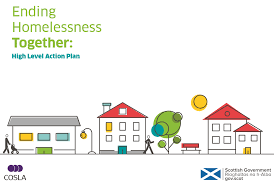
ABC comment, have your say below:

ABC Chief Appointed Colchester Area Ambassador For, In Your Area
ABC NEWS - SIMON COLLYER - has been appointed Colchester Area Ambassador for In Your Area, www.inyourarea.co.uk a popular local news website from the Reach Plc stable.
Simon is the founder of the Association of Pension & Benefits Claimants CIC www.abcorg.net
The ABC was founded to provide information, ideas, and signposting to those on social security benefits and state pensions. Our audience is truly international, and we have on our website over 3,500 articles about this dynamic area, along with much more useful information.
SOCIAL PARTNERS is our public relations and communications vehicle and ABC spin off. If you want to raise your organisations profile, perhaps we can help?
Reach plc (known as Trinity Mirror between 1999 and 2018) is one of Britain’s biggest British newspaper, magazine, and digital publishers. Reach publish 240 regional papers in addition to the Daily Mirror, Sunday Mirror, The Sunday People, Daily Express, Daily Star, Daily Star Sunday. As well as the Scottish Daily Record and Sunday Mail and the magazine OK.

To visit In Your Area, click below:
ABC Comment, have your say below:

Treasury's New Rules Foster Less Intimidating Letters to Debtors Aimed at Preventing Mental Health Issues and Suicides
DEBT - The letters borrowers receive from their lenders when they are seriously behind on repayments will be easier to understand and less intimidating as a result of new rules proposed by the Treasury.
Default Notices are designed to give people who are falling behind on their debts fair warning before lenders take further action, but much of the formatting and content has not been updated in nearly 40 years.
Research from the Money and Mental Health Policy Institute and debt charities has shown that large amounts of capitalised text and legal terms can make the information contained in the letter hard to understand, which has the unintended consequence of confusing and distressing people. This has a negative impact on people’s mental health as well as their ability to effectively manage their debt.
As part of the government’s effort to support people in problem debt, it will legislate to change the language and presentation of information in debt letters. The new rules will make debt letters less threatening by restricting the amount of information that must be made prominent and requiring lenders to use bold or underlined text rather than capital letters. Lenders will also now be able to replace legal terms with more widely understood words and letters will clearly signpost people to the best sources of free debt advice.

Image: Salisbury MP John Glenn.
John Glen, Economic Secretary to the Treasury, said:
Being behind on your credit repayments can be a really distressing experience which is made worse by a confusing and intimidating letter from your lender.
As part of our effort to help to people struggling with their finances, it’s right that we look again at the legislation around these letters. These new rules will help to take the fear out of finance by ensuring that letters are easier to understand, less threatening, and empower people to take control of their finances.
Some vital work has been done by charities, the industry and the Money and Mental Health Policy Institute and I am grateful for their support in tackling this important issue.

Image: Martin Lewis.
Martin Lewis, Founder and Chair of the Money and Mental Health Policy Institute charity, said:
It’s no exaggeration to say that this change could save lives. Over 100,000 in England attempt to take their lives each year due to debts, and four times that consider it. So we’re delighted the government has agreed to back this element of our campaign and change the default demand rules. The last thing people struggling with debt need is a bunch of thuggish letters dropping through the letterbox, in language they can’t understand, written in shouty capitals alongside threats of court action.
And the timing is crucial, with millions of people facing debt and distress due to the pandemic, the sooner we end these out-of-date laws which force lenders to send intimidating letters the better. Today’s changes will make the most distressing debt letters much less intimidating, and crucially will also easily and calmly point people in serious debt to get the free, non-profit, debt advice they need.

Image: Eric Leenders.
Eric Leenders, Managing Director, Personal Finance at UK Finance said:
The banking and finance industry understands the impact that debt can have on a customer’s wellbeing and has been working closely with government to help support customers, especially those in vulnerable circumstances. Lenders have to send Default Notices and these important changes announced today will ensure that customers receive more appropriate and supportive communications.
These new rules are the latest in a wide package of support put in place to help people struggling with their finances, especially through coronavirus. This includes £38 million of extra funding to debt advice providers this year and working with lenders and financial regulators to give people access to payment holidays on their mortgages and a range of consumer credit including credit cards, personal loans, motor finance and payday loans.
The government has also given the Financial Conduct Authority strong powers to protect consumers who borrow money, including cracking down on payday lenders, capping the cost of rent-to-own, and taking action on overdraft fees.
The new rules will be delivered through secondary legislation and are expected to come into force in December 2020. All lenders will then be required to make the changes within six months.
ABC Comment, have your say below:






